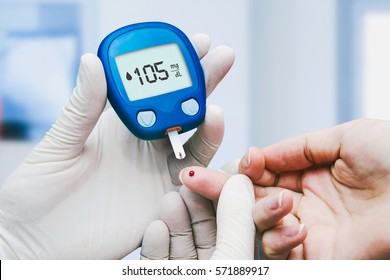One out of every two people needing insulin for type 2 diabetes does not get it
A new report published by WHO in the lead-up to World Diabetes Day highlights the alarming state of global access to insulin and diabetes care, and finds that high prices, low availability of human insulin, few producers dominating the insulin market and weak health systems are the main barriers to universal access.
Diabetes facts
- The number of people with diabetes rose from 108 million in 1980 to 422 million in 2014. Prevalence has been rising more rapidly in low- and middle-income countries than in high-income countries.
- Diabetes is a major cause of blindness, kidney failure, heart attacks, stroke and lower limb amputation.
- Between 2000 and 2016, there was a 5% increase in premature mortality from diabetes.
- In 2019, diabetes was the ninth leading cause of death with an estimated 1.5 million deaths directly caused by diabetes.
- A healthy diet, regular physical activity, maintaining a normal body weight and avoiding tobacco use are ways to prevent or delay the onset of type 2 diabetes.
- Diabetes can be treated and its consequences avoided or delayed with diet, physical activity, medication and regular screening and treatment for complications.
Insulin for 1$

“The scientists who discovered insulin 100 years ago refused to profit from their discovery and sold the patent for just one dollar,” said WHO Director-General, Dr Tedros Adhanom Ghebreyesus. “Unfortunately, that gesture of solidarity has been overtaken by a multi-billion-dollar business that has created vast access gaps. WHO is working with countries and manufacturers to close these gaps and expand access to this life-saving medicine for everyone who needs it.”
Insulin is the bedrock of diabetes treatment – it turns a deadly disease into a manageable one for nine million people with type 1 diabetes. For more than 60 million people living with type 2 diabetes, insulin is essential in reducing the risk of kidney failure, blindness and limb amputation.
However, one out of every two people needing insulin for type 2 diabetes does not get it. Diabetes is on the rise in low- and middle-income countries, and yet their consumption of insulin has not kept up with the growing disease burden. The report highlights that while three in four people affected by type 2 diabetes live in countries outside of North America and Europe, they account for less than 40% of the revenue from insulin sales.
The report Keeping the 100-year-old promise – making insulin access universal, published today to commemorate the 100th anniversary of the discovery of insulin states:
Causes for the gaps in global access to insulin.
- The global market shift from human insulin, which can be produced at relatively low cost, to the pricier analogues (synthetic insulins) is imposing an untenable financial burden on lower-income countries. In general, human insulin is as effective as analogues, but analogues are at least 1.5 times more expensive than human insulins, and in some countries three times more expensive;
- Three multinational companies control more than 90% of the insulin market, leaving little space for smaller companies to compete for insulin sales;
- Suboptimal regulation and policies, including suboptimal pharmaceutical pricing approaches, weak procurement and supply chain management, insufficient financing to cover demand, and overall weak governance are affecting access to insulin and related devices, such as monitoring and delivery devices, in all countries;
- Insufficient health system capacity and infrastructure, including a lack of service integration at the primary care level, inadequate capacity for providing diabetes care and ensuring supply continuity and infrastructure for information management, supply management, and local production of insulins are widespread challenges in lower-income countries;
- Research is geared towards wealthy markets, neglecting the public health needs of low- and middle-income countries, which account for 80% of the diabetes burden
- The pricing landscape is also uneven and reveals a lack of transparency in the way prices are set, according to the report. For example, biosimilar insulins (essentially generic versions) could be more than 25% cheaper than the originator product, but many countries, including lower-income ones, are not benefitting from this potential saving.
Bridging the Insulin Access Gap
- Boosting human insulin production and supply and diversifying the manufacturing base for biosimilar analogue insulins to create competition and reduce prices;
- Improve affordability by regulating prices and mark-ups, using pooled procurement and improving transparency in the way prices are set;
- Promote local manufacturing capacity in under-served regions;
- Promote research & development centred on the needs of low- and middle-income countries;
- Ensure that increased access to insulin is accompanied by prompt diagnosis, and access to affordable devices for blood sugar monitoring and injecting insulin;
- Use health resources wisely by selecting human insulin where possible and allocate adequate funding to provide a full package of care.
WHO’s Intervention
The global health organization has accelerated efforts to address some of the barriers to the availability of insulin and related medicines and health technologies through a series of dialogues with business associations and manufacturers of these products.
Several months after the first dialogue, industry has committed to a number of actions, including:
- The development of a policy blueprint for improving access to biosimilars of insulin;
- Participation in WHO’s prequalification programme for insulin, glucose meters, test strips and diagnostic tools;
- Participation in international/UN pooled procurement or aggregated demand mechanisms, once established;
- Submission of data on insulin thermostability to WHO
- Participation in the reporting mechanism that WHO will use to register and publish contributions from the pharmaceutical and health technology industry.
The expansion of WHO’s prequalification programme to include glucose monitoring devices, test strips and diagnostic tools, and the inclusion of additional forms of insulin and other diabetes medicines in the latest update of the WHO Model Lists of Essential Medicines are expected to lead to improved access in countries where demand is currently unmet.
Efforts to increase access to life-saving diabetes medicines is just one of the workstreams of the Global Diabetes Compact, launched in April 2021. The Compact is bringing together national governments, UN organizations, nongovernmental organizations, private sector entities, academic institutions, philanthropic foundations, people living with diabetes and international donors to work towards a world where all people at risk for diabetes or living with diabetes can access the care they need.
For all you need to know about diabetes’ risk factors, management, treatment and prevention, keep a date with our comprehensive report on diabetes next week.
Source: Dare Agbeluyi, Chief Publisher, with WHO Reports.
Publisher’s Note:
- Leave your comments in the comments box below and share the post
- Send your health- related articles, stories, tips to [email protected]for free publication
- Like and share our Facebook page: @citizencomfortng





Great info. Lucky me I came across your website by accident (stumbleupon).
I’ve book marked it for later!